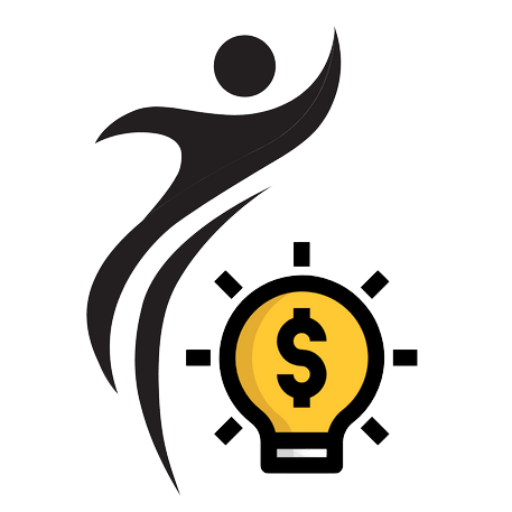Unveiling the Silent Threat | Women’s Leading Health Risk-Heart Disease
Unveiling the Silent Threat | Women’s Leading Health Risk-Heart Disease, In today’s fast-paced world, where our lives are often overshadowed by various commitments and responsibilities, it’s imperative to take a moment to prioritize our health.
While many are aware of common health concerns, such as diabetes or cancer, there’s a silent threat that often goes unnoticed among women-heart disease. We are committed to raising awareness about this critical issue that affects countless lives.
.png) |
| Unveiling the Silent Threat | Women’s Leading Health Risk-Heart Disease |
Understanding the Gravity of the Issue
Heart disease, often thought to be a predominantly male affliction, is a leading cause of death among women worldwide. Contrary to popular belief, it’s not just a man’s disease.
In fact, heart disease claims the lives of more women than all forms of cancer combined. This startling reality underscores the urgency of shedding light on this often misunderstood health risk.
The Unique Challenges for Women
Various factors contribute to the increased vulnerability of women to heart disease. Hormonal fluctuations, particularly during menopause, can impact the cardiovascular system.
Additionally, societal roles can lead to stress and neglect of self-care, further elevating the risk. Our comprehensive research has shown that it’s crucial to address these factors holistically, considering both physiological and lifestyle aspects.
Identifying Early Warning Signs
Recognizing the symptoms of heart disease is pivotal in early detection and prevention. While chest pain is a classic symptom, women might experience subtler signs like shortness of breath, nausea, fatigue, or pain in the jaw, neck, or back.
These nuanced symptoms often lead to misdiagnosis or delayed treatment. Educating women about these signs is a paramount step in our mission to mitigate the impact of heart disease.
Empowerment Through Knowledge and Lifestyle
we firmly believe that knowledge empowers. Through our meticulously curated resources, we aim to equip women with the information they need to make informed decisions about their heart health.
From heart-healthy recipes to stress-reduction techniques, our platform offers a wealth of strategies to adopt a heart-conscious lifestyle.
Our Call to Action
The journey towards a heart-healthy life begins with a single step – awareness. We invite women of all ages to join us in this mission.
By sharing our resources within your community and encouraging open dialogues about heart health, we can collectively make strides in preventing heart disease from claiming more lives.
Join the Movement
It’s time to shatter the misconception that heart disease is solely a man’s concern. Our commitment to this cause drives us to create a ripple effect of change.
By spreading the word and taking proactive steps towards heart health, we envision a future where women can lead longer, healthier lives, free from the shadows of heart disease.
Remember, every voice matters, and every action counts. Join us at Healthy2wealthy4life and be a catalyst for change. Together, we can outrank heart disease and rewrite the narrative of women’s health. Healthy2wealthy4life Empowering Women for Heart Health
Conclusion
In conclusion, heart disease poses a significant yet often overlooked threat to women’s health.
By understanding the unique challenges women face, recognizing early warning signs, and promoting knowledge-driven lifestyle changes, we can collectively take a stand against this prevalent issue.
Join us in our mission to raise awareness, empower women, and ultimately, outrank the impact of heart disease on women’s lives.
Frequently Asked Questions (FAQs)
1. What is the main focus of the article “Unveiling the Silent Threat: Women’s Leading Health Risk – Heart Disease”?
The article sheds light on the often overlooked health risk of heart disease in women. It aims to raise awareness about the prevalence, symptoms, and factors contributing to heart disease among women.
2. How does heart disease impact women differently than men?
Heart disease can manifest differently in women compared to men. Hormonal fluctuations, societal roles, and stress contribute to increased vulnerability among women.
This article explores these unique challenges in detail.
3. What makes heart disease a significant concern for women’s health?
Heart disease is the leading cause of death among women, surpassing all forms of cancer combined.
This fact highlights the urgency of addressing this health issue and implementing preventive measures.
4. What are the common misconceptions about heart disease and gender?
One common misconception is that heart disease primarily affects men. This article dispels this myth by providing evidence-backed insights into the prevalence of heart disease among women.
5. How can I recognize the early warning signs of heart disease in women?
The article discusses various symptoms that women might experience, including subtle signs like shortness of breath, nausea, fatigue, and pain in the jaw, neck, or back.
Being aware of these symptoms can lead to early detection and timely intervention.
6. What resources does Healthy2wealthy4life provide for women’s heart health?
Healthy2wealthy4life offers a range of educational resources, including heart-healthy recipes, stress-reduction techniques, and lifestyle tips.
These resources empower women to make informed decisions about their heart health.
7. How can I contribute to raising awareness about heart disease among women?
You can contribute by sharing the article and its resources within your community, engaging in open conversations about heart health, and encouraging women to prioritize their cardiovascular well-being.
8. How does the mermaid diagram in the article illustrate the relationship between different aspects of heart health?
The mermaid diagram visually represents the interconnectedness of awareness, education, symptom recognition, empowerment, lifestyle changes, and disease prevention in the context of women’s heart health.
9. What is the ultimate goal of Healthy2wealthy4life in regard to women’s heart health?
Healthy2wealthy4life is to empower women to lead heart-healthy lives and prevent heart disease.
By fostering a community of informed individuals, the company aims to make a significant positive impact on women’s overall well-being.
10. How can I get involved with Healthy2wealthy4life‘s mission to outrank heart disease?
You can get involved by visiting Healthy2wealthy4life , accessing the provided resources, sharing the article on social media, and participating in discussions surrounding women’s heart health. Your active participation will contribute to the success of the mission.
Remember, knowledge is a powerful tool in the fight against heart disease. By staying informed and spreading awareness, you can play a vital role in improving the heart health of women everywhere.
11. What are the non-traditional risk factors for heart disease in women?
When it comes to heart disease in women, it’s not just about the usual suspects like high cholesterol and smoking. There are some sneaky non-traditional risk factors that can play a role too. Let’s talk about them!
First up, let’s chat about stress. You know how life can sometimes feel like a roller coaster ride? Well, constant stress is like taking that roller coaster way too many times
it can mess with your heart health. Stress triggers your body to release hormones that can lead to high blood pressure and inflammation, which are like red flags for heart disease.
So, finding healthy ways to manage stress, like yoga, meditation, or even just taking a leisurely stroll, can give your heart a much-needed break.
Here’s a curveball for you: polycystic ovary syndrome (PCOS). It’s a condition that affects hormone levels and can mess with your menstrual cycle. But here’s the kicker – it’s also linked to heart problems. Women with PCOS often have higher levels of insulin, which can up the risk of diabetes and heart disease.
So, if you suspect you’re dealing with PCOS, it’s not just about fertility concerns; it’s also worth keeping an eye on your heart health.
And guess what? Sleep isn’t just beauty rest it’s heart health rest too. Sleep apnea, a condition where you briefly stop breathing while you snooze, is more common in women than you might think.
It’s not just a noisy disturbance for your partner; it can mess with your heart rhythm and blood pressure So, if you find yourself constantly tired during the day, snore like a chainsaw, or wake up feeling like you ran a marathon (even though you didn’t move an inch), it might be worth talking to a doctor
women’s heart health can be a bit of a puzzle with some unexpected pieces. So, paying attention to these non-traditional risk factors, along with the usual suspects, can help you keep your ticker in tip-top shape. Stay heart-smart!
12. Do potassium rich foods help women’s heart health ?
Yes, potassium-rich foods can contribute to women’s heart health. Adequate potassium intake helps regulate blood pressure and counteracts the effects of sodium, reducing the risk of hypertension.
This is particularly important for women, as they may be more prone to high blood pressure. Foods like bananas, spinach, sweet potatoes, and beans are excellent sources of potassium and can support overall cardiovascular well-being.
-
13. What are the best heart health tips for middle-aged women?
-
Healthy Diet:
-
Prioritize fruits, vegetables, whole grains, lean proteins, and healthy fats. Limit processed foods, sugary items, and excessive sodium.
-
Regular Exercise:
-
Engage in aerobic activities, strength training, and flexibility exercises for at least 150 minutes per week.
-
Maintain Weight:
-
Maintain a healthy weight to reduce the risk of heart diseases.
-
Manage Stress:
-
Practice stress management techniques like yoga, meditation, or deep breathing.
-
Avoid Smoking:
-
Quit smoking to lower heart disease risk.
-
Limit Alcohol:
-
Consume alcohol in moderation, if at all.
-
Stay Hydrated:
-
Drink plenty of water for overall health.
-
Monitor Blood Pressure:
-
Keep track of blood pressure regularly and manage it within healthy ranges.
-
Cholesterol Control:
-
Manage cholesterol levels through a balanced diet and, if necessary, medication.
-
Regular Check-ups:
-
Schedule regular health check-ups to monitor heart health and address any concerns promptly.
-
Adequate Sleep:
-
Prioritize quality sleep for optimal heart health.
-
Social Connections:
-
Maintain strong social connections to support emotional well-being.

